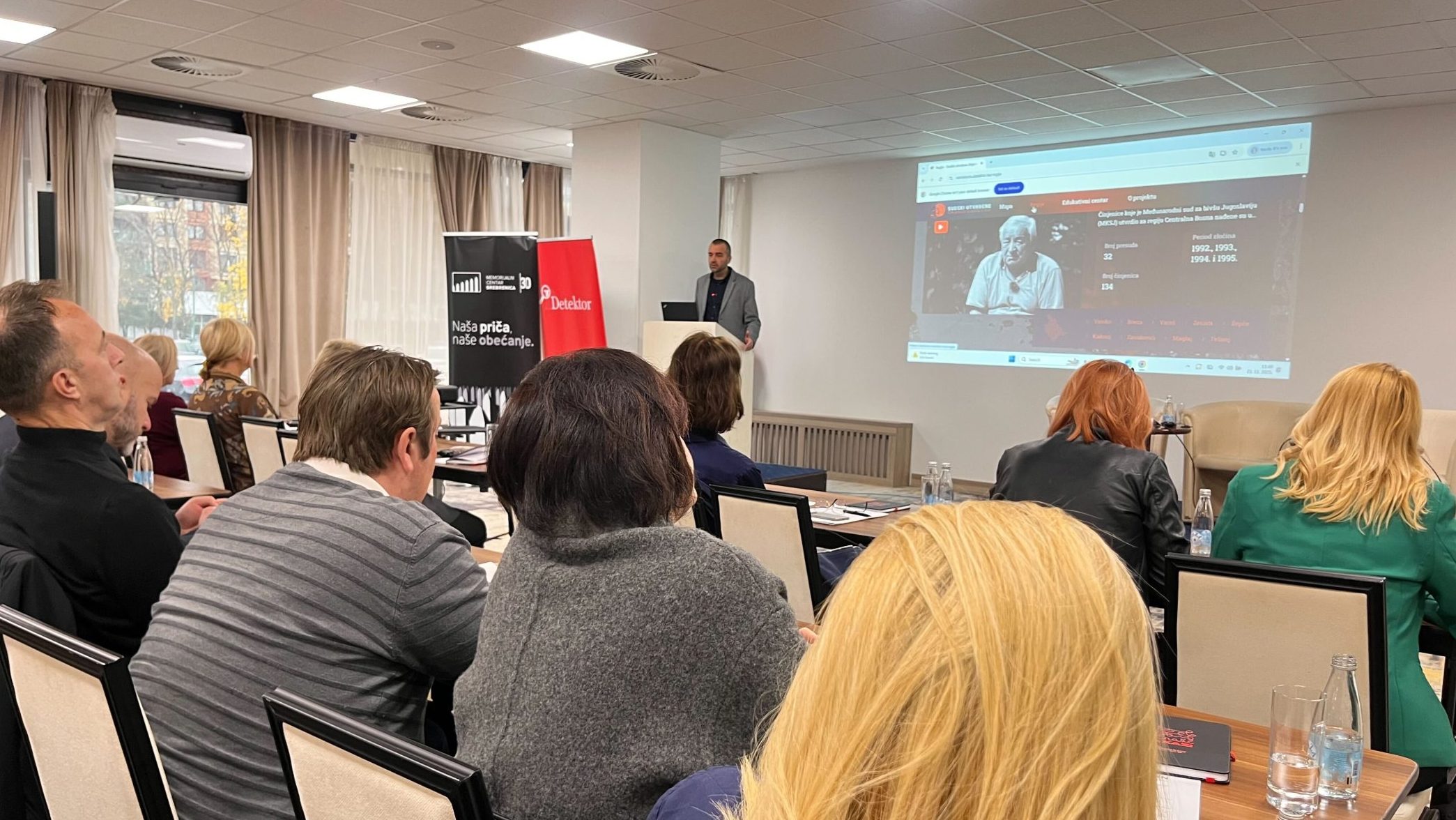This post is also available in: Bosnian
“The French Government has evidence proving that Muslims killed their own people using snipers, saying that Serbs did it. Here, in this courtroom, we shall see that nothing was as it appeared. Everything was different. The French intelligence service was there. It has sufficient information,” Karadzic said at the hearing at which the relevance of the documents he requested from five countries was discussed.
The hearing was attended by representatives of Germany, France, Croatia and Iran, while Bosnia and Herzegovina “could not ensure the presence of its representative at The Hague on time due to technical difficulties”.
The Hague Prosecution charges Karadzic, former President of Republika Srpska and supreme Commander of its armed forces, with genocide committed in Srebrenica and ten other Bosnian municipalities, crimes against humanity and violation of laws and customs of war, as well as the siege of Sarajevo and the campaign of shelling and sniping against the city.
Jean-Luc Florent, Deputy for Legal Affairs with the French Foreign Ministry, said France was not obliged by anything, including cooperation with the Tribunal, to disclose documents pertaining to the work of its intelligence service, as this would jeopardize “the important principle of national security”.
Karadzic said he primarily wanted to prove that “four parties to the conflict”, Serbs, Muslims, Croats and the International Community, took part in the war in Bosnia and Herzegovina. He said the documents he requested from countries would show what happened and “how big the armed force with which the Serbs had to deal was”.
In his request submitted to the German Government, Karadzic asked for documents pertaining to the import of weapons to Bosnia and Herzegovina during
the war.
“The issue of smuggling weapons, which were brought to Srebrenica via Germany, cannot be neglected. We cannot consider the testimonies of witnesses coming from the UN countries, which breached the embargo as unimportant. (…) The countries predicted what would happen in Yugoslavia and Bosnia and Herzegovina. They actively contributed to the break-up of the country and the things that happened in it. We defended ourselves from the whole world,” the indictee said at this hearing.
Thomas L?ufer, Ambassador of Germany at the Hague, asked the indictee to limit his requests to specific events and actions and to be precise.
“We have determined that our Government does not possess some of the mentioned documents, while some of them are kept by other agencies. For some
documents, we are not even sure whether they exist. And, if they exist, they are confidential and we cannot disclose them,” Laufer said.
Josip Paro, Ambassador of Croatia at The Hague, said his country faced a similar problem, adding that Croatia would provide additional documents once the indictee submits more concrete requests.
“Croatia is one of the most important countries. It was not possible to avoid it while transporting arms, ammunition and military equipment. (…) Croatia was a filter for the passage of all weapons. They know of each bullet, each rifle, each uniform or boot that was brought to the country. They took their share. They are absolutely aware of everything and they possess records,” Karadzic said.
At the request of the Trial Chamber, the Prosecution said it did not claim that Srebrenica was a demilitarized zone, adding that it did not deny that weapons were “smuggled into the zone” or that attacks were conducted within the enclave and outside of it. The Prosecution said it had never claimed that military forces did not represent a legitimate military target.
“I appreciate the Prosecution’s admissions. On the basis of those admissions we could conclude that the decision made by me and the VRS to conduct a military operation in Srebrenica and Zepa was legitimate and would not be included in the indictment, but it still is. The issue arises as to where the weapons came from. We must follow the path of the weapons in order to see which forces were against us,” Karadzic said.
It was explained at this hearing that representatives of Iran did not submit any documents to the indictee, claiming that they were not “relevant”. Ali Mokhberolsafa, Legal Advisor at the Iranian Embassy in the Netherlands, called on the Trial Chamber to reject the indictee’s request.
Karadzic said that, in that case all relevant representatives of these countries should take an oath and say before the Tribunal that they did not possess certain documents, because those countries could not refuse to cooperate “merely by saying they do not have the documents”.
“Loads and loads of weapons were transported from Iran to Bosnia and Herzegovina…boat or air shipments could not be transported without the participation of these countries. If this is what the countries which took part in our crisis say, I am asking the Chamber to order the countries’ officials to take an oath and say they do not have the documents. How can the countries which determined our actions, my actions, and the duration of the war be amnestied by being allowed not to cooperate or submit documents. We must be held responsible,” the indictee said.
Karadzic appeared in court without legal advisors. He said he would continue to do so “until the end of the trial”.

